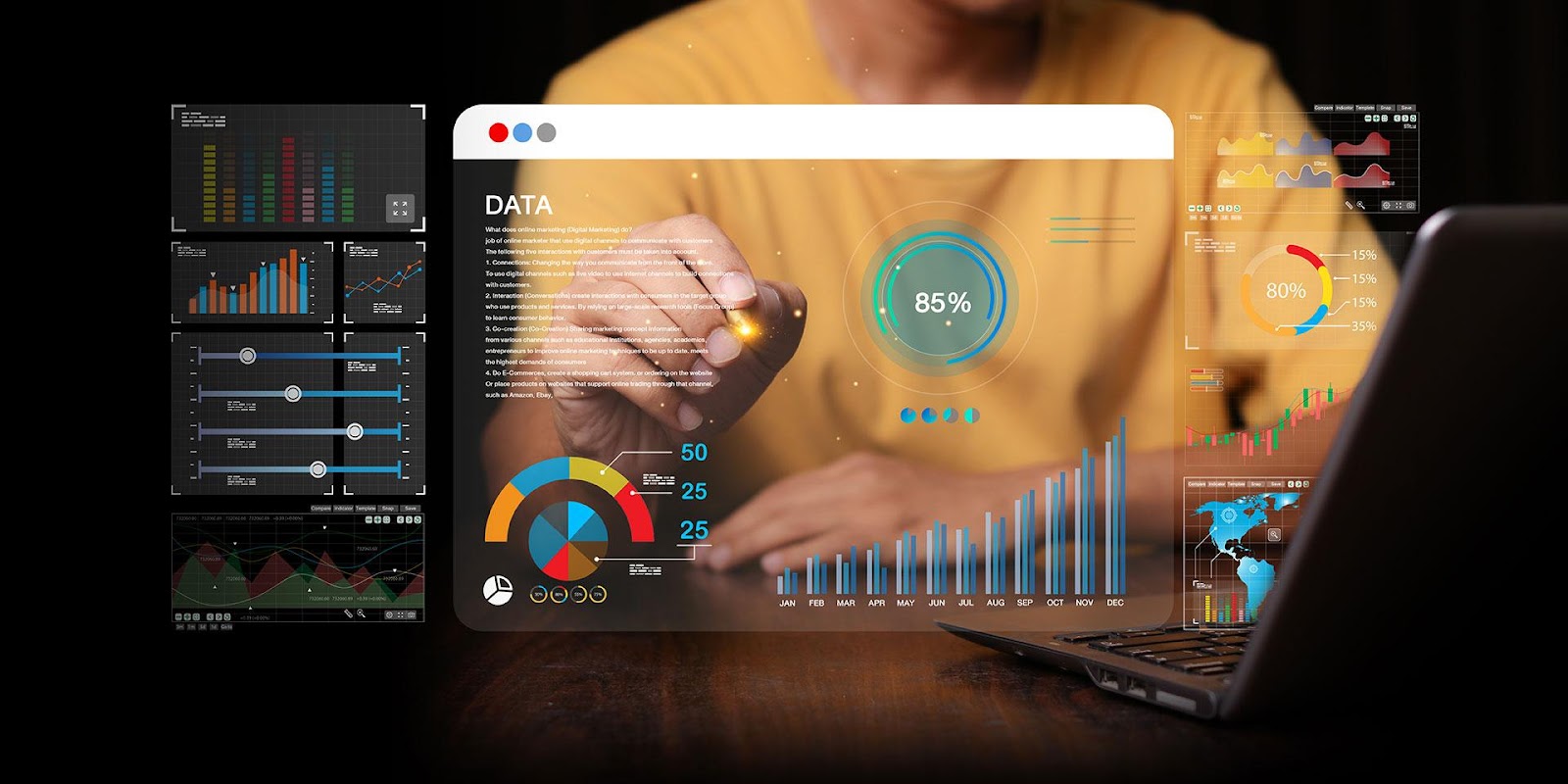Every business needs a steady flow of clients. However, since business owners have so many responsibilities on their hands, customer satisfaction and retention can be difficult to maintain. Time-consuming tasks like data input and sending routine emails can distract your focus from the needs of customers.

Creative agency owners are well aware that customer satisfaction can’t be compromised. This is where high-quality creative agency CRM software comes in. It can take on your daily tasks, reducing your workload, and allowing you to focus more on interactions with customers.
Thanks to technological advances, there are numerous creative agency CRMs available. These systems can collect and analyze data, automate features, and even store customer details, making each customer interaction more personal. In the next five years, 12% of businesses are projected to adopt CRM software to help run their business.
What Is CRM software?
CRM systems (customer relationship management) are technologies that can collect and analyze data and take over time-consuming tasks using automation features. These systems provide one location where your creative agency can store and track customer data.
The data from each customer is always available, meaning each interaction will be relevant to your customers’ needs. Creative agency CRMs can help you develop a better understanding of those needs, which can lead to more cross-selling and up-selling opportunities.
Types of CRM systems
Almost all CRM software offers the same features. However, different systems focus on different aspects of customer relationship management, meaning it’s important to select the best CRM for your agency.
The three main types of CRM systems are analytical, collaborative, and operational. Let’s discuss each type, their main features, and what businesses may benefit the most from their use.
Analytical CRM systems
These systems mainly focus on collecting and analyzing data. The three main components of analytical CRM software are data mining, the data warehouse, and OLAP tools. Below we’ll discuss each one and their contributions to your business.
- Data warehouse: A data management system that stores data from different sources in one location. The data that’s stored in the data warehouse gets analyzed and organized.
- Data mining: Extracting useful data from a data warehouse. This process identifies relationships between large sets of your business’ collected data. The data then gets analyzed, showing customer behavior patterns, and even making predictions in future customer behavior.
- Online analytical processing tools: Often referred to as OLAP, this technology resembles data mining in that it focuses on data analysis. However, OLAP considered a subcategory of data mining, since it refines the collect data even further. Data mining can track trends and make predictions, but OLAP tools offer better, closer analysis.
Analytical CRM systems help business owners come up with better strategies by analyzing customer data your creative agency has collected over time. This highlights both the strongest and weakest areas of your business. Analytical CRMs can aid in the entire marketing, sales, and after-sales processes of your business, from identifying the most effective marketing strategies to recognizing frequent customer complaints.
In simple terms, analytical CRM systems are best suited to businesses that have massive amounts of customer data and need guidance on how to use it to their benefit.
Collaborative CRM systems
Collaborative CRM is a system that focuses primarily on communication. These systems help improve customer experiences by allowing employees to work collaboratively and share collected information. Common aspects of collaborative CRMs are phone and messaging tools, data management, and file sharing.
There are three key components of collaborative CRM: interaction management, channel management, and document management. All of which focus on improving customer interactions and satisfaction.
Let’s look at the three components and how they work in conjunction to optimize communication.
- Interaction management: This aspect of collaborative CRM focuses on identifying the best methods to contact customers. Syncing customer data throughout your organization facilitates management of every interaction with clientele, making communication feel more personalized. For example, some customers may prefer to be contacted via email. Others may feel more comfortable with in-person or video meetings. With a collaborative CRM system in place, members of your team can easily share these preferences amongst themselves and personalize contact methods for each customer.
- Channel management: The effectiveness of channel management relies heavily on the efficiency of your company’s interaction management. Once interaction management is optimized, the channels that customers use to interact with your business must be enhanced. The channel management process involves five steps that need to be carefully followed, as the results of one aspect determine the success of the next. The first step of this process is the analysis of large amounts of consumer data. While a member of your staff may be perfectly capable of analyzing customer data, human error is always a risk and can have disastrous results.
This is where the channel management aspect of collaborative CRM software comes into play. With a reliable CRM system, all the data needed to analyze trends in customer requirements, inquiries, and complaints is readily available and free of error. These systems reduce the time spent on double-checking analyses and free up more time to devise strategies to cater to customer preferences.
Channel management within CRM systems can provide automation of various business components and benefit both your service team and your clientele. For example, automation of marketing and sales tools is possible, saving your employees time and improving productivity. For your customers, automated customer service components can be accessed, such as chatbots, allowing them to receive real-time assistance.
- Document management: Some collaborative CRM software provides a place for businesses to store customer documents. This comes in handy if an employee needs quick access to proposals, contracts, and other documents when working with a client.

Whereas the other types of CRM systems are geared more towards making sales, collaborative CRMs usually focus on customer satisfaction and retention. However, they’re still beneficial to sales and marketing. These departments can gather insight into what methods proved effective through customer data.
Collaborative CRM systems are most beneficial for businesses with many employees that struggle to stay synchronized. This is perfect for companies with more than one location, making it easy for employees to access customer data no matter where they’re based.
Operational CRM systems
Operational CRM software is focused on the full cycle of a customer’s interactions with your business. They resemble collaborative CRMs as they focus directly on engaging with customers, and often have many of the same features. However, where collaborative CRMs focus on satisfaction and retention, operational CRMs focus on every stage of engagement, from their first inquiry to becoming a customer.
Although other types of CRM have automation features, operational CRM systems utilize them more than collaborative and analytical systems. Operational CRMs offer automation services for sales, marketing, and servicing. Each automation feature has key benefits that take important yet time-consuming tasks off your employees’ hands.
- Marketing automation: With an automated marketing system, redundant tasks such as sending promotional emails and making customer-related content recommendations on your business’ site become easier. Not only does this reduce workload, it also creates a more relevant experience for your customers, keeping them informed and engaged with your services.
- Sales automation: This feature simplifies lead management by analyzing the lead scoring process. With this ability, deciding which potential client to prioritize becomes less of a hassle. Operational CRM systems are also able to determine which tasks should be assigned to which sales representatives based on collected data and priority level. They can send out automated notices as guidance for what the next steps are to keep moving a lead towards a sale.
- Service automation: The service automation features in an operational CRM are extremely beneficial to customer service agents. Since these systems can collect and store client data, any information a representative may need to assist a customer is at their fingertips. Instead of sorting through data manually to give customers guidance, the CRM software can quickly determine which details are most relevant to their inquiry. Operational CRMs can also automatically send out surveys to customers to keep track of their satisfaction.
Operational CRM systems are most beneficial to businesses that want to better understand their current customers as well as lightening the workload for employees. They are beneficial for companies of all sizes, but especially those focused on growing their business through positive customer interaction and employee optimization.
How much do CRM systems cost?
Since there are numerous creative agency CRM systems available and most offer multiple packages, the price range for CRM software varies. According to a 2023 Solutions Review article by William Jepma, costs are dependent on factors like a business’ specific needs, provider, and projected growth.
The average price range for a CRM used in a small business can be anywhere from $12 to $20 (per user, per month). However, mid-sized companies can expect to pay between $100 to $200, and for large businesses, $200 to $400. Note that these are rough estimates, and can vary according to your choice of CRM and what features you decide to incorporate.
There are five key factors determine the cost of a business’ CRM system:
- The size of your business
- Your business’ needs and existing software
- The number of users that need access
- The CRM software you choose
- Duration of use of software
Though these are the main factors of CRM system pricing, there are other costs to keep in mind. Adding new users as your business grows can slowly but surely increase your outlay. Then, maintenance and support costs must be factored in as well.
CRM software: Perfect for any creative agency
While there are numerous ways to boost productivity within a creative agency, a powerful method is utilizing CRM tools. Skillful use of CRM automation can streamline various business processes and customer relationships, providing more time to focus on creative tasks. This strategic approach, when tailored to an agency's specific needs, can drastically enhance operational efficiency.
Managing a creative agency is a complex task requiring highly specialized software. A tool like a project management software for advertising agencies can streamline processes and improve workflow. This not only optimizes operational efficiency but also significantly enhances client relationships and results.
Now that we’ve got the basics down, let’s talk about why creative agency CRMs are the perfect tool to help boost your agency’s productivity. Since the purpose of an agency is to directly serve other companies in achieving their goals, understanding your clients is of utmost importance. This is especially true for creative agencies, as they need to understand not just a client’s data and statistics, but their creative style as well.
As so much attention is paid to the unique services a creative agency requires, daily tasks like lead development, scheduling, and customer service can become overwhelming. But with a CRM system, an agency can easily simplify or automate these tasks. Creative agency CRMs allow you to focus less on redundant tasks while simultaneously boosting productivity in areas such as design, marketing, branding, and other services.

Web-to-lead features
This functionality helps capture lead information from your website, as well as landing and splash pages. It’s a simple process with major payoffs. The first step is setting up a form on your website for potential customers to fill out. The customer data is logged in the CRM system as a possible lead as soon as they submit the form.
Some CRM systems can also send alerts to sales team members, allowing them to quickly follow up with the potential client.
Customization of features
Since small creative agencies collect so much data regarding their clients, data overload is a common occurrence. Some creative agency CRM systems can be customized in ways that simplify workloads and boost productivity.
Ease of collaboration
The benefits of creative agency CRM software don’t end there. There are CRM systems that make project collaboration a breeze. Teammates and contractors can easily be invited to work on projects, manage tasks, and track time spent on projects together.
Access to data from mobile devices
It’s important for an agency’s team members to be able to access data even when they’re out of the office. Some CRM software provides mobile apps that let employees access important data from their mobile device, no matter their location.
Customer service coordination
If a client requires customer service regarding more than one department, team members need to ensure information relevant to another department is relayed to them. However, the relay of this information is sometimes inefficient, such as a client requesting a follow-up call from the department they previously communicated with. With a CRM system in place, client information can be easily accessed and updated. This results in improved, more consistent customer service, and a more satisfied, trusting customer.
Improved email communications
A large portion of interactions between businesses and a client are conducted via email. Creative agencies are no exception. Many clients prefer email due to ease of use and speed. There are various CRM systems that can benefit your agency by utilizing email add-ons. They make a client’s contact information readily available, in addition to any past interactions you’ve had with them.

Features aiding in customer retention
Since creative agencies are so focused on working closely with their customers and fulfilling all their needs, customer retention is extremely important. When choosing a creative agency CRM, you should ensure you’re choosing a solution that provides all data regarding a specific client. This includes past and ongoing projects, previous interactions, notes on the client, and more. While creative agencies benefit from gaining new clients, the retention of current clients is just as important.
Not only does customer retention mean a steady flow of clients and revenue, it also attracts new clients. If your business can be trusted, it will always draw in potential clients. Seeing an agency held in high regard for their continued service is a sure-fire way to draw more interest to your business.
Opportunity for client portal creation
Many clients working with creative agencies like to check the status of their service requests at any time of day. Some CRM systems allow clients to access a self-service portal. These portals let customers view their data with your agency without the need to contact a representative directly. Some systems even allow clients to update their projects from anywhere, at any time.

Agency-friendly CRM systems
Since creative agencies don’t run like other businesses, there are some aspects that an agency may need from a CRM that aren’t prioritized in others. CRM providers working primarily with businesses with less focus on client personalization may not understand the level of optimization your creative agency requires.
For that reason, it’s important to specifically use a creative agency CRM. The trust between you and your CRM software is just as important as the trust your customers place in you. Always start by reading reviews and recommendations from other agency owners, especially those in the same field. If you’re the owner of a creative agency, you should look for reviews by other creative agencies regarding a system’s performance and how they benefitted from using that specific CRM software. A positive review from someone in a similar role is one of the best ways to know you’re looking in the right place.
Bonsai CRM: The best CRM software for your creative agency
At the end of the day, having a creative agency CRM system in place is never a bad idea. When it comes to choosing the best software for your creative agency, you should opt for a system with positive reviews from those in your field. Bonsai CRM is trusted by many agency owners to optimize their productivity. Their features include but are not limited to, task assignments, finance tracking, and time tracking. With a Bonsai creative agency CRM in place, your productivity, customer satisfaction, and customer retention can improve drastically.
Bonsai offers a seven-day free trial that allows you full access to their creative agency CRM system’s features. This way, you’ll see why Bonsai is trusted by many creative agency owners to keep their businesses running smoothly.







